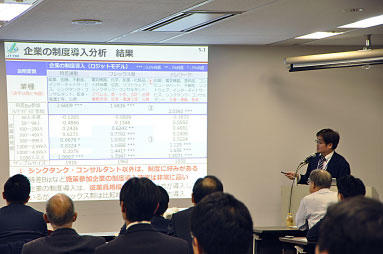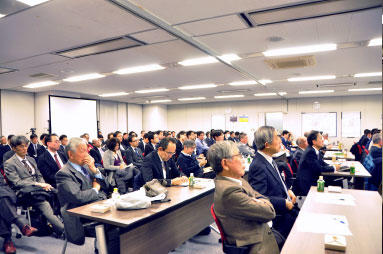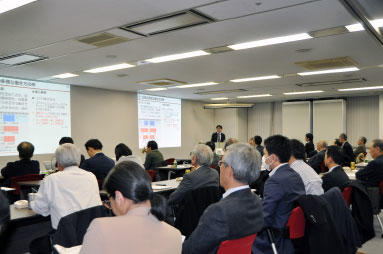Research on the Effects of Changes in Working Style on Railway Commuting Behavior
- Colloquium
- Railways and Railway and Area Development
The 126th Transport Policy Colloquium
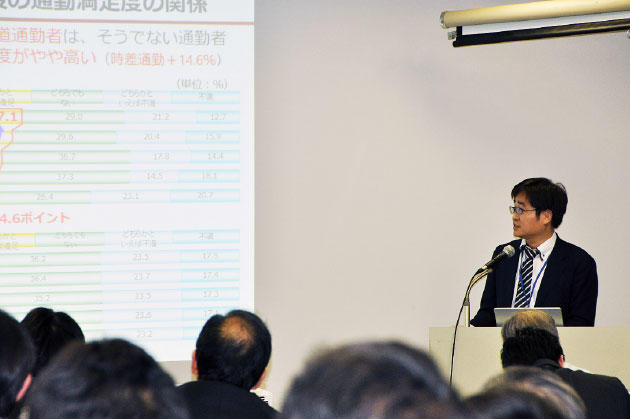

| Organizer | Japan Transport and Tourism Research Institute (JTTRI) |
|---|---|
| Date / Time | Thu, Feb 28,2019 18:00~20:00 |
| Venue | Japan Transport and Tourism Research Institute (JTTRI) (Tokyo) |
| Event Number | The 126th |
| Theme | Research on the Effects of Changes in Working Style on Railway Commuting Behavior |
| Lecturer | Toshiyuki Yamada Research Fellow. Japan Transport and Tourism Research Institute (JTTRI) |
| Commentator | Yuichiro Kaneko Professor, Department of Civil Engineering, College of Science and Technology, Nihon University |
Event Summary
In this colloquium, Mr. Yamada showed a low rate of system introduction regarding working styles by companies and a low rate of system selection by commuters. He explained that the fluctuations in the train boarding time for all commuters were small, but the change in the boarding time of commuter who changed commuting behavior was remarkable in the decrease of the share at the peak hours and the dispersion before and after the peak hours, furthermore, it was shown that the commuters who chose the system were more satisfied with the overall commuting than those who did not.
He also showed that due to the influence of system selection regarding working styles, the number of users at peak hours might have already been reduced by about 7% compared to the absence of any system. In addition, it was shown that when the usage rate of the current system doubled, the peak reduction effect was about 7%, most of it shifted after the peak, and if the current usage rate was used to the maximum, it would be a potential reduction of 15% at the peak.
The commentator showed the actual situation of staggered working hours and related past research. Regarding his research, he also provided opinions on the refinement of individual institutional selection model and time selection model.
During the Q & A session, there were lively discussions, including questions about factors behind the shift in demand after the peak, companies responding to staggered working hours, and effects outside the Jisa Biz (staggered commuting) period.
It was a successful colloquium with over 75 participants including research institutes such as universities, Ministry of Land, Infrastructure, Transport and Tourism (MLIT), Japan Railway Construction Transportation and Technology Agency (JRTT), local governments, railway companies, other transportation companies, consultants, and media.
Program of the seminar is as the following
| Opening Remarks 1 |
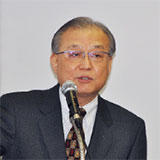
Masafumi Shukuri |
|---|---|
| Opening Remarks 2 |
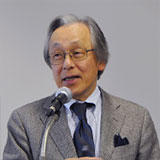
Hirotaka Yamauchi |
| Lecturer |
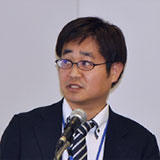
Toshiyuki Yamada file(Japanese) |
| commentator |
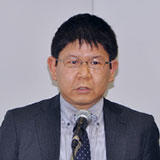
Yuichiro Kaneko file(Japanese) |
| Question and Answer |
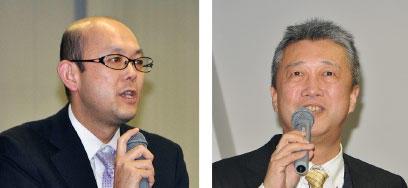
|
Outline of the seminar
